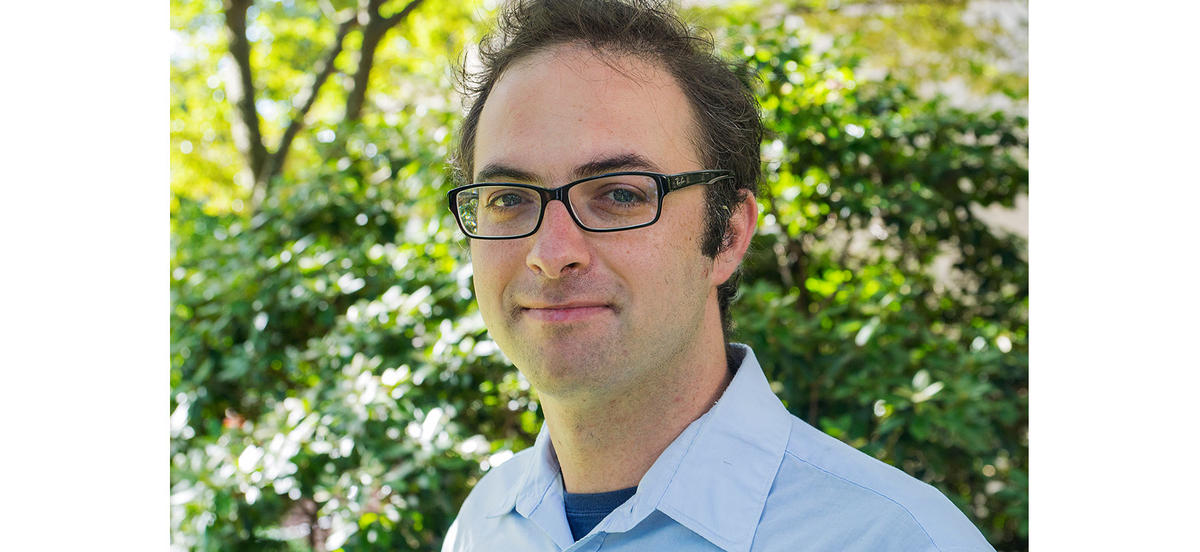Daniel Grin Awarded National Science Foundation Grant

Professor Daniel Grin has been awarded a $135,000 grant by the National Science Foundation. Photo by Patrick Montero.
Details
The assistant professor of physics and astronomy was awarded a $135,000 grant from the NSF to both fund research in cosmology and help support students.
Assistant Professor of Physics and Astronomy Daniel Grin has been awarded a grant of $135,000 from the National Science Foundation (NSF). The grant will support his work analyzing how the change of spacetime affects the laws of physics, particularly the charge of an electron.
Grin’s research has primarily focused on analyzing the cosmic microwave background (CMB), electromagnetic radiation that is a remnant from an early state of the universe and can offer clues to its first few hundred thousand years. One frontier in his research, and cosmology as a whole, however, will be studying 21-centimeter radiation, which allows modern scientists to examine a much greater amount of time than the CMB, ranging into the first few hundred million years of the universe.
“The properties of the CMB change if the fundamental electron charge varies in space or time,” Grin said. “But in principle, this 21-centimeter radiation is even more promising in testing such theories, as it is able to probe a much greater volume of space.”
This NSF award is Grin’s second grant since joining the Haverford faculty in 2016; his first was a NASA grant he was awarded in 2018. In addition to supporting his new research, this latest grant will also allow him to focus on accessibility and inclusivity in physics and astronomy.
“Every NSF research proposal must address ‘broader impacts,’ where they want you to explain how your proposed research and educational activity advances public interests and inclusive practices,” said Grin. “I want to make physics more accessible to students of all backgrounds. Many students steer away from physics before even setting foot in a physics class at Haverford. I hope to help address this situation using new summer, and academic-year, programming that covers skills in back-of-the-envelope problem solving, computer-based problem solving, and estimation, important skills in physics that are often taught very informally. By teaching these skills in a more structured setting, in collaboration with the Chesick Scholars Program and other collaborators on campus, we hope to level the playing field, especially for first-generation, low-income, and BIPOC students.”
The National Science Foundation also previously funded Grin's postdoctoral research at the University of Chicago. He was influenced by the NSF’s culture of valuing education, a value he has continued to uphold at Haverford.
Grin will be using his grant to fund summer research opportunities for his seven current student researcher assistants, as well as provide funding for his computational lab.
“Jack Morgan ‘20, Zhihan (Linda) Yuan ‘21, Hurum Tohfa ‘22, and Tana Na Nakorn ‘23 all played incredibly significant roles by helping me prepare figures for the proposal,” he said. “Also, Darshan Patel ‘23 has helped lay the groundwork for our research on 21-centimeter radiation, so I am very thankful to all of them for their efforts!”
Grin’s research could spearhead a new frontier in the field of particle cosmology, all while he helps to train and instruct future generations of physicists, engineers, STEM professionals, and critical problem solvers more generally.



